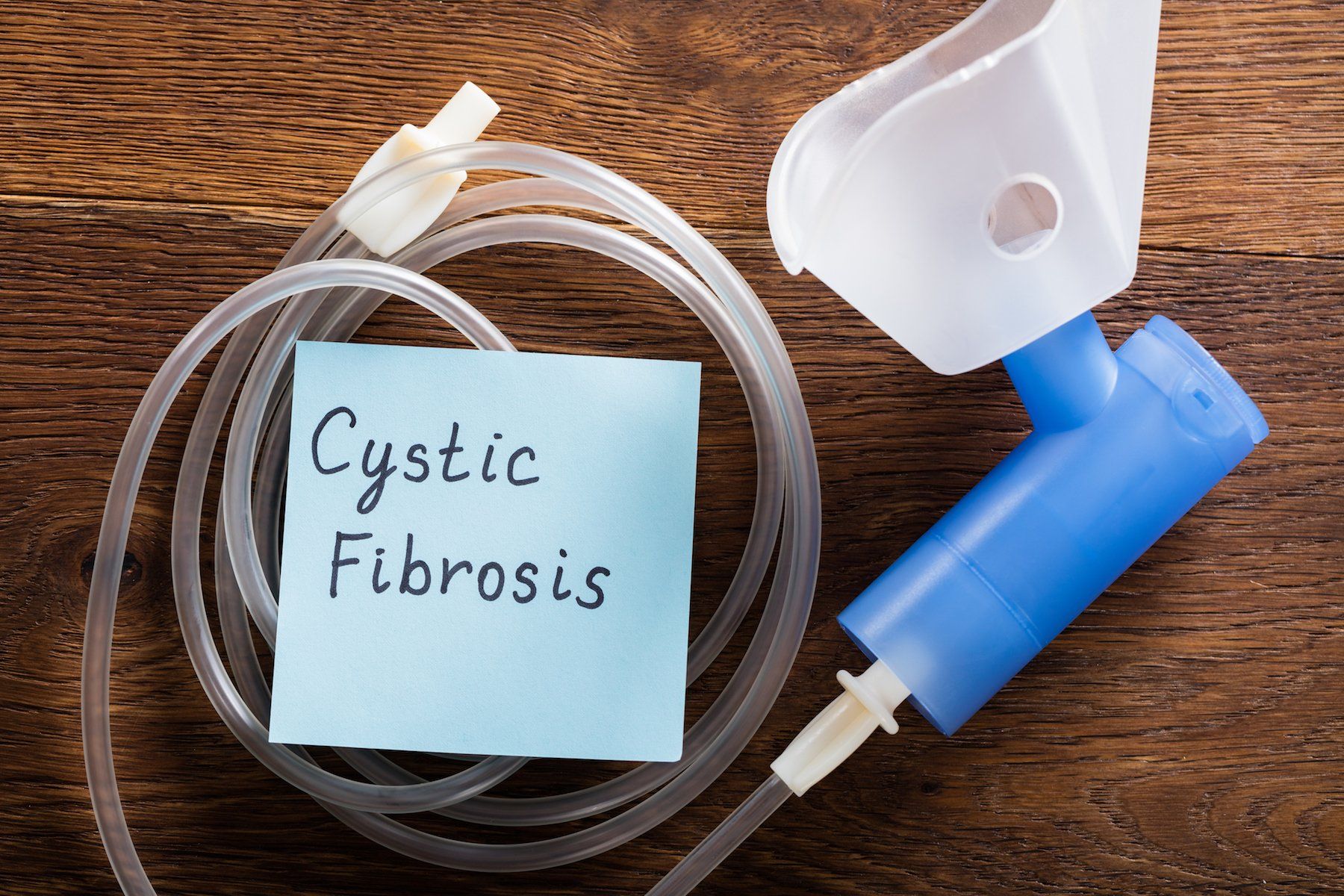CFTR Modulators Helping Cystic Fibrosis Patients Catch Their Breath
Orkambi and Kalydeco are members of a new generation of medications that are making history for people living with Cystic Fibrosis. These treatments focus on improving underlying lung function rather than simply delaying its decline...

Orkambi and Kalydeco are members of a new generation of medications that are making history for people living with Cystic Fibrosis. Capable of correcting the underlying genetic defect that causes CF, Orkambi and Kalydeco can essentially override the mutation in a protein named Cystic Fibrosis Transmembrane Conductance Regulator, also known as CFTR. Affecting around 75,000 people globally, Cystic Fibrosis is the result of inheriting two copies of a CFTR mutation.
Depending on where the mutation occurs within CFTR, protein production, folding, or function can all be affected. For people living with Cystic Fibrosis (CF), cells within their organs have trouble regulating the amount of salt ions, like chloride and sodium, because CFTR controls the delicate balance of these ions across their mucous membranes. Without the right balance of salt and water, mucous builds up in organs like the lung and pancreas, making it difficult to breathe and making sufferers more susceptible to lung infections.
Up until the approval of Kalydeco in 2012, treatment options for Cystic Fibrosis had been stagnant for decades, with therapies focused on managing infections and symptoms rather than affecting the underlying disease process. Although significant progress has been made since CF was first described in the 1930s, it wasn’t until recently that treatments focused on improving underlying lung function rather than simply delaying its decline.
For Abby and Simone McFee, twins living with Cystic Fibrosis, use of Orkambi has meant less lung infections and fewer hospitalizations.
“When I used to get a cold or a flu or something, I would pretty much be guaranteed to end up in the hospital and now it just doesn’t happen, I recover really fast”, explained Abby, who has been taking Orkambi since April 2016.
For the 26-year-olds living in Victoria, British Columbia, lengthy hospital stays were becoming more and more common as they got older. Since birth, they’ve been taking more than 10 pills per day and deal with daily respiratory therapy to manage shortness of breath, mucous build-up in their lungs, frequent infections, and digestive issues that affect nutritional and mineral absorption.
For Simone, the effects of using Orkambi were even more pronounced: “From January 2014 to the middle of 2016 I was on this pretty intense downward spiral, health-wise, and then I started taking Orkambi after my first lung collapse and it stabilized everything.”

Abby and Simone McFee, twins from Victoria, British Columbia living with Cystic Fibrosis. Both have been taking Orkambi since April 2016.
A variety of CFTR mutation types can cause different variations in Cystic Fibrosis and are associated with differing levels of disease severity. The most common mutation, affecting approximately 70% of patients with CF worldwide and also the McFee sisters, is known as delta-F508 (or ΔF508). People with a ΔF508 mutation lose a single amino acid from their CFTR protein, causing it to misfold and lose its conformational shape. As a result, there is less functional protein available to balance their salt levels.
Orkambi, a drug cocktail composed of ivacaftor and lumacaftor, is currently the only CFTR modulator approved for patients with ΔF508 mutations. The lumacaftor component of Orkambi helps to correct protein misfolding and brings it to the cell surface to be activated, while ivacaftor aides CFTR’s channel opening and closing functions. Ivacaftor is also available as monotherapy, as the product Kalydeco, and is currently approved for use by the US Food and Drug Administration (FDA) for over 30 different mutation types. Despite treating the most common mutation, Canadian CF patients had to wait until January 2016, just over three years after Kalydeco’s approval, to get access to Orkambi.
Despite the hundreds of medications they’ve used prior to Orkambi, the McFee sisters have experienced gradual declines in lung function. Antibiotics, anti-inflammatories, digestive enzymes, bone medications, steroid inhalers, and nutritional supplements all help manage the symptoms of Cystic Fibrosis and the many lung infections they would get every year, but unfortunately can’t improve the underlying cause of their disease or reverse the damage that’s already occurred in their lungs. Without a stabilization or improvement in lung function, scar tissue builds up over time leading to a vicious cycle of infections that cause more lung damage, which leads to more infections. Orkambi is the first medication available to them that can potentially halt this cycle of infection and damage.
Unfortunately, getting access to it isn’t easy. With a price tag over $250,000 per year, governments around the world have been reluctant to foot the bill. Although it has received approval for sale by Health Canada, the provinces have decided not to cover the medication. This is largely due to a recommendation by the Canadian Agency for Drugs and Technology in Health (CADTH), an independent organization created to make recommendations to the provinces about whether or not to fund medications.
Citing limitations in the available research that showed only marginal improvements coupled with exorbitant prices, CADTH decided not to endorse Orkambi for reimbursement despite patient input describing “substantial improvement in breathing, fewer exacerbations, no significant adverse events, and a better quality of life”.
Preliminary results showed that treatment with Orkambi leads to improved lung function, reduced chance of experiencing a pulmonary exacerbation, increased weight gain, and improvements in CF symptoms. This data has been heavily scrutinized, however, with clinical trials showing only modest improvements, which CADTH says aren't substantial enough to justify the cost. Improvements in lung function were found to be statistically significant, but minimal, with only a 2.6-3.0% change from baseline with more than 70% of patients failing to achieve an absolute improvement of at least 5%.
Considering the hefty price tag, a change of 3% may seem like a small benefit, but for people living with Cystic Fibrosis it means drastic changes in quality of life. The benefits aren’t only seen in lung function either; Abby and Simone have also noticed they can maintain their weight more easily, don’t need to use special gastronomy tubes to supplement food intake, and can recover more quickly when they get sick.
“For actual patients the improvement isn’t just lung function” explained Simone, “it’s all sorts of things like clearing up digestive issues, overall feeling better, and not having as many lung infections which are all really huge things for stopping long term lung damage.”
Use of Orkambi has also meant a stabilization in their health that can mean the difference of a lung transplant. The year before she started Orkambi, Simone was hospitalized eight times, usually for about 2 weeks at a time. But since April 2016, that’s dropped to only one hospitalization.
“There’s no doubt in my mind that had I started it like 5 years ago I wouldn’t even be listed on the transplant list now.”
Abby and Simone are (un)lucky enough to have lung function below 50%, which makes them eligible for compassionate access through Vertex Pharmaceuticals, the developers of Orkambi and Kalydeco. For the other tens of thousands of ineligible CF patients however, Vertex’s prices and CADTH’s decision has left them without any reasonable avenues for accessing these life-changing medications.
Cystic Fibrosis Canada and CF specialists from clinics across the country have called on the provinces and CADTH to reconsider funding Orkambi.
